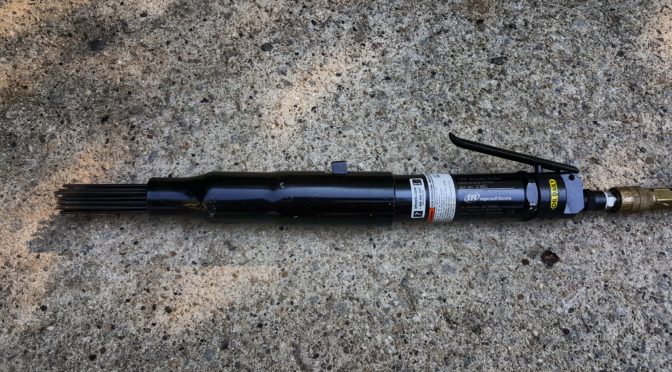One of the things you learn in Michigan when you have to work on cars is how to deal with rust. Most cars after 10 years in Michigan look like they were dipped in the ocean and then allowed to rust like crazy. It’s pretty much inevitable. The older the car the worst shape they will be in. This year while working on my 1996 Landcruiser I decided to invest in a needle scaler to go faster and save my hands.
Historically, I would use chisels, screw drivers and wire brushes to remove loose rust from part still on the car. This was time consuming, my carpal tunnel would flare up and my hands would ache.
A friend helping restore an old submarine told me about how he bought a needle scaler to help remove rust faster, I had never seen one at the time and filed it away for future reference. One day in Harbor Freight I finally saw one but I really wasn’t keen on buying one of their tools. I’ve had one too many HF tools die at the wrong time and have slowly moved away from them for most tools.
At any rate, I like Ingersoll Rand air tools and read up on their model 125 needle scaler. It has 4.5 stars out of 5 stars on Amazon with 73 reviews. So I read up more about it.
It generates 4,600 blows per minute using 15 CFM at 90 PSI. It has a rubber seal on its throttle to reduce leaking and you can disassemble the unit to clean or replace needles without tools. To stress that next to the last point – you can buy replacement needle packs for the unit.
So, I took the leap and ordered one from Amazon.com and it showed up in two days courtesty of Amazon Prime. My wife now grills me when Amazon boxes show up 🙂
Out of the Box
It arrived fully assembled both longer (about 12″ without the quick coupler fitting) and also heavier than I expected at about 6.8 pounds, also without the coupler.
The first thing I did was install a quality Milton quick connect male plug. These are case hardened steel and not soft brass like you find at Harbor Freight and the big box discount retailers like Home Depot and Lowes. I swear by Milton now because I haven’t had one fail yet (I’m sure they will eventually) but I have replaced countless Harbor Freight, Home Depot and Lowes air fittings over the years.
I also use quality PTFE/Teflon tape. I’ve also given up on the cheap tape. Ace brand tape is pretty good and lately I’ve been using this AntiSieze Technologies brand heavy duty tape and really prefer it.
Taking it Apart
There apparently is a secret society of air needlers who protect the world from very much information being given about these tools. I kid you not, 90% of the manual is legal disclaimers, safety notices and useless boiler plate. I am seeing this trend over and over with the tool companies.
Since I can’t point you to a page, let me try and explain. At the end of the day, an air needler is an impact tool. Inside the body is a 1″ piston that is driving an “anvil” up against the base of the needles 4,600 times per minute. It’s pretty much what you would expect to see if you pulled apart an air hammer except the body is a straight line vs. a pistol-like configuration.
Why is it long? My guess is that it helps the unit get into tight spaces by reaching further.
Now, the needles are really 1/8″ diameter hardened steel rods. These “needles” are really good at getting under rust flakes and popping them up and off the steel surface. It’s a loud tool but it does its job amazingly well.
So you rotate the black color and it will pull straight off the machine and you can see the three groups. The main tool is on the right, the color is on the top left and the needle assembly with two needles removed for you to see are in the lower right of the next photo:
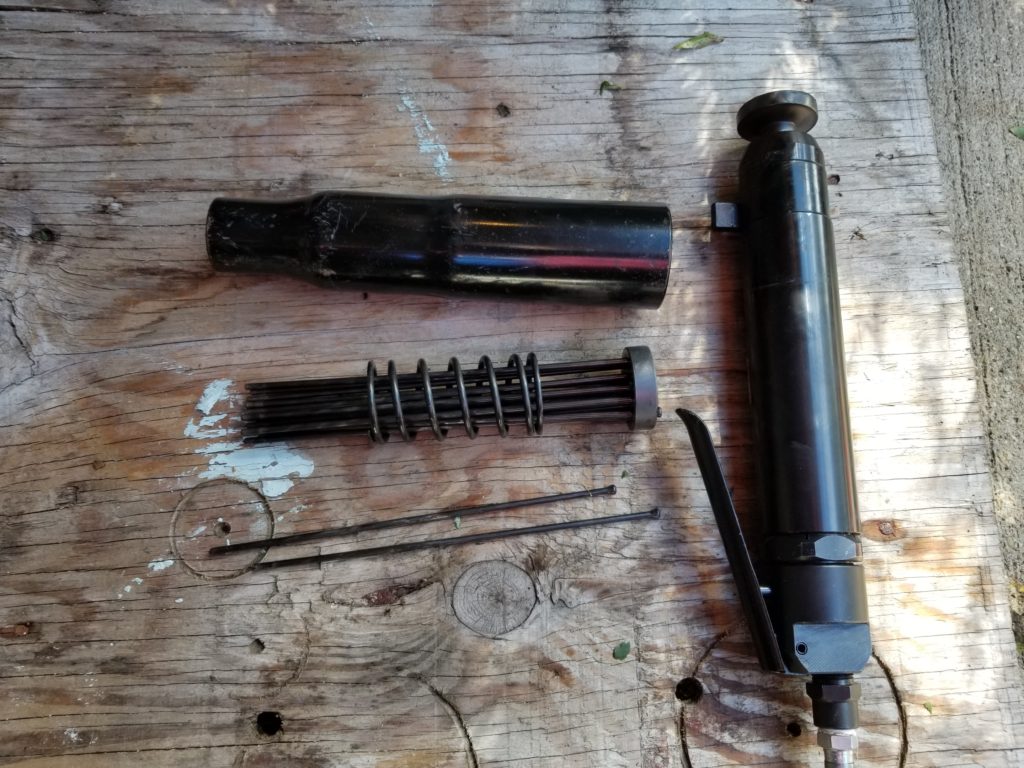
The needles are held in position by a disc with holes to position each needle and a heavy spring shoves the needles back against the anvil to enable the hammering effect.
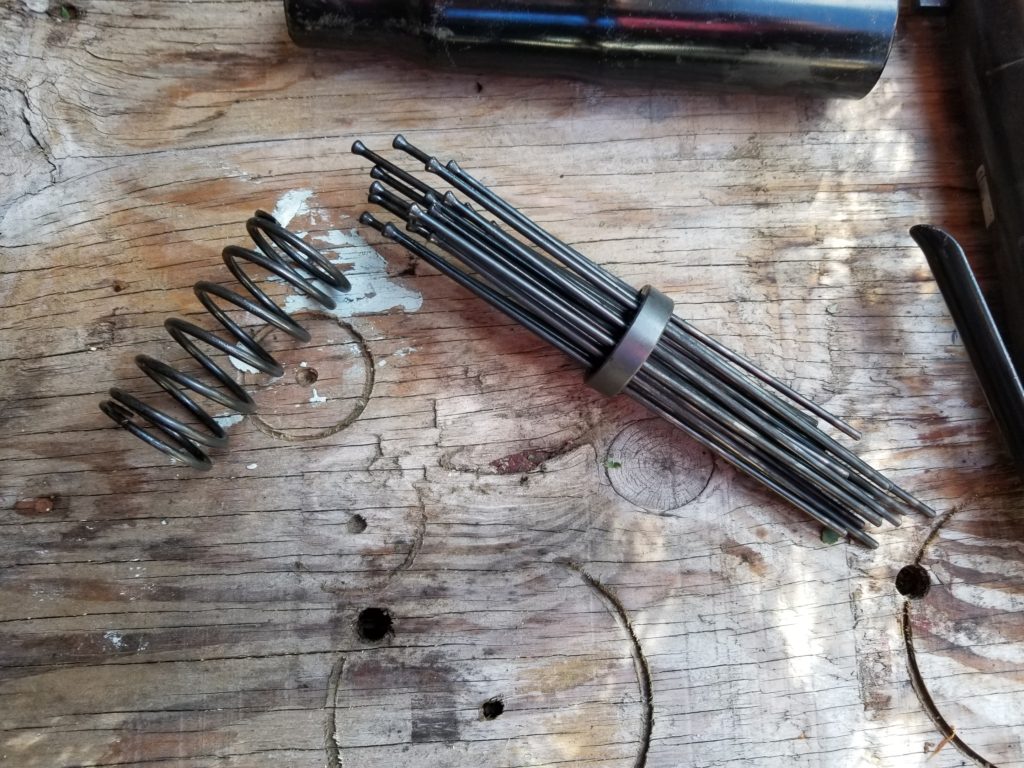
Here’s a better photo of the disc with some of the needles pushed out for you to see:
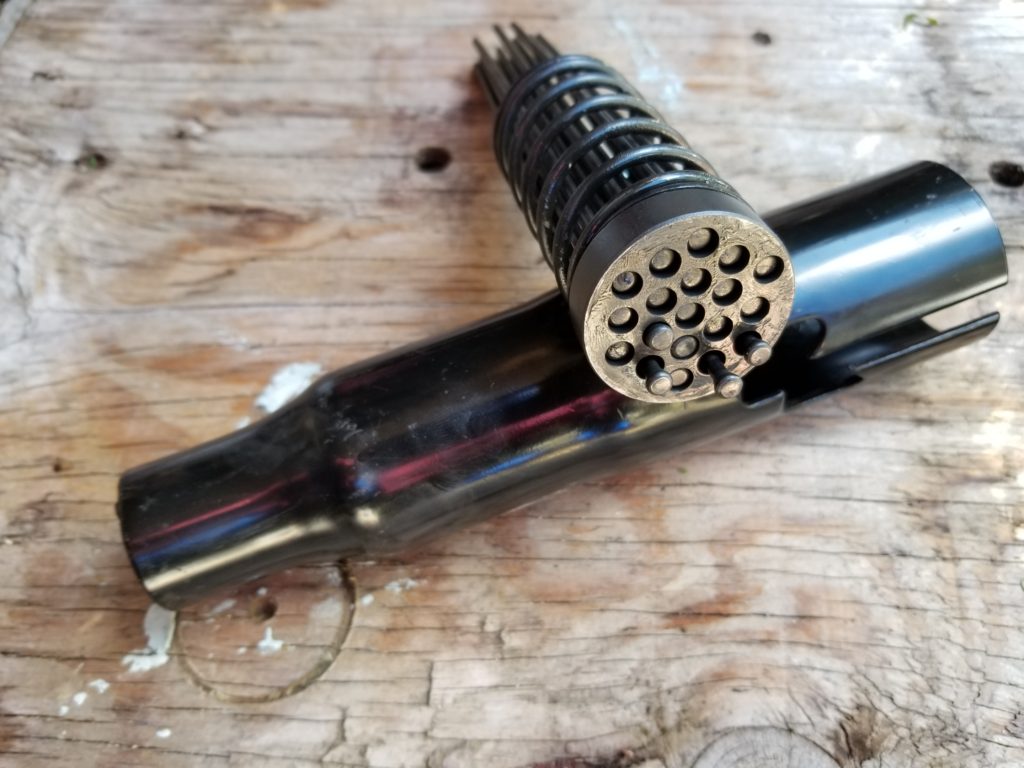
This photo shows how the needles and disc would line up with the piston if head when the collar is in place:
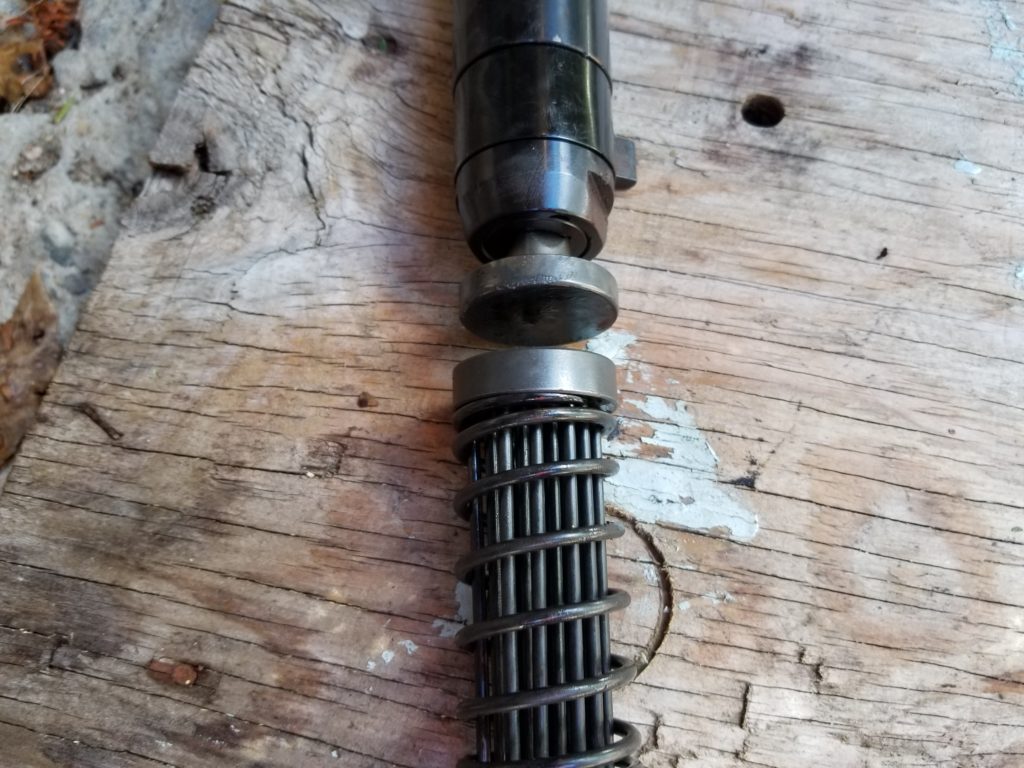
All in all, it is a pretty straight forward tool. You will want to take it apart to clean periodically – at least I do. I take and hose the needles and collar down with brake cleaner and then apply a light oil to the needles.
Also, be sure to keep the air tool lubricated. I do not run inline oilers due to my plastic work and need for clean dry air. Instead, I add 4-6 drops of air tool oil (not regular engine oil) in through the quick connect coupler.
I did think it was interesting that IR listed the exact ML of oil to pour in before running the tool. I just counted off 20 drops of air tool oil before I ran it for the first time and called it even — it’s ran just fine by the way.
The Results
I am really pleased. I used the model 125 a ton on my old Land Cruiser this summer that had flaking rust all over the place including the running boards that were in tough shape. One was salvageable and the other I had to make a replacement. Other parts of the truck were just covered in rust. This needle scaler allowed me to do the work much faster and more thoroughly than ever before.
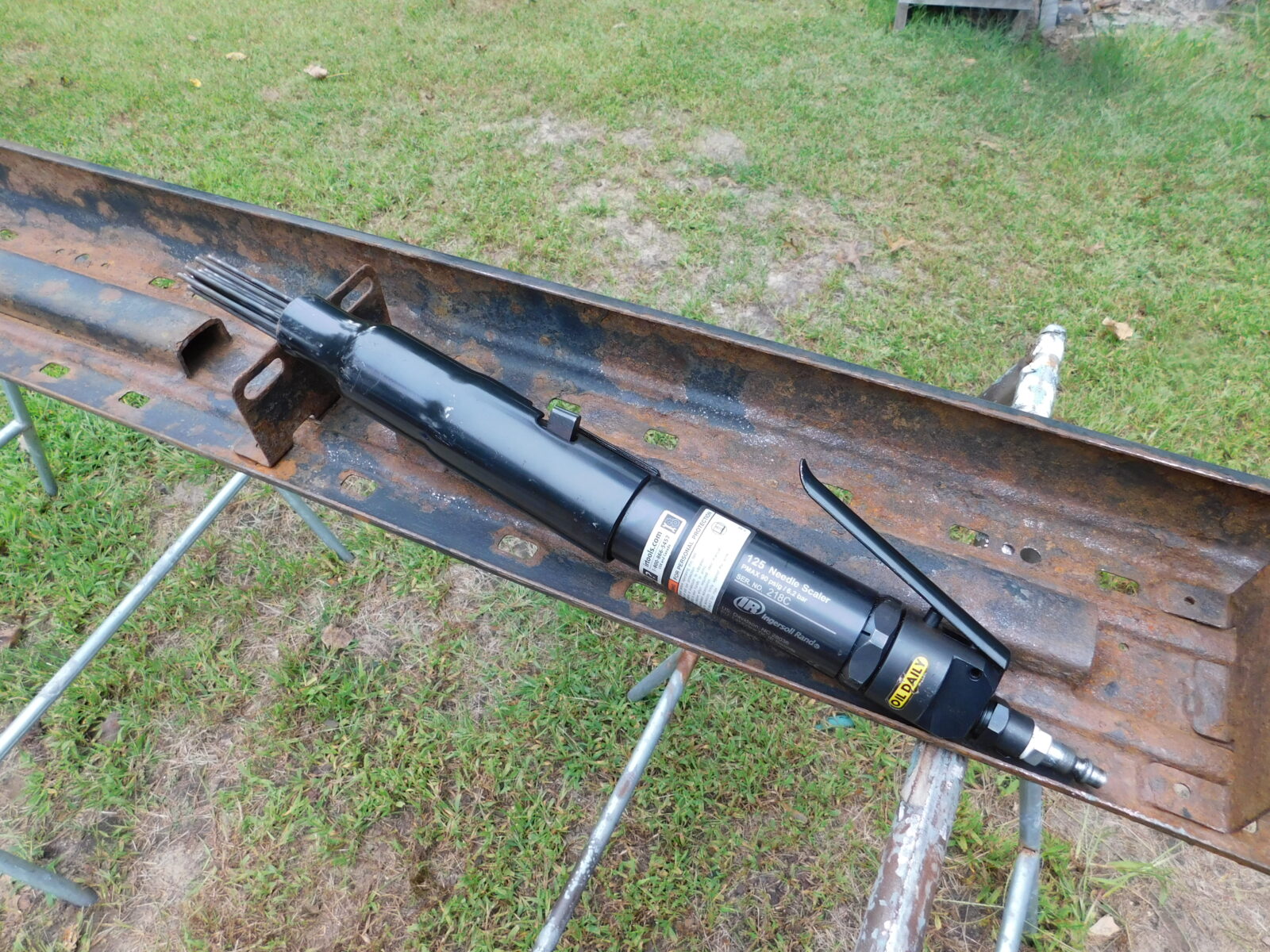
I ran it at 90 PSI through about a hundred foot of 3/8 inch air line with 1/4″ quick connect fittings. I had no trouble whatsoever blasting through anything that could be removed.
It will definitely dent the hell out of thin sheet metal but I was not worried about that. I just wanted to get rid of the rust scale. I also found that I could use it to hammer on places that I was worried about and if it punched through I knew I had an area I needed to work on. For example some of the fenders while they still had paint had rusted really badly from the inside and we’re paper thin.
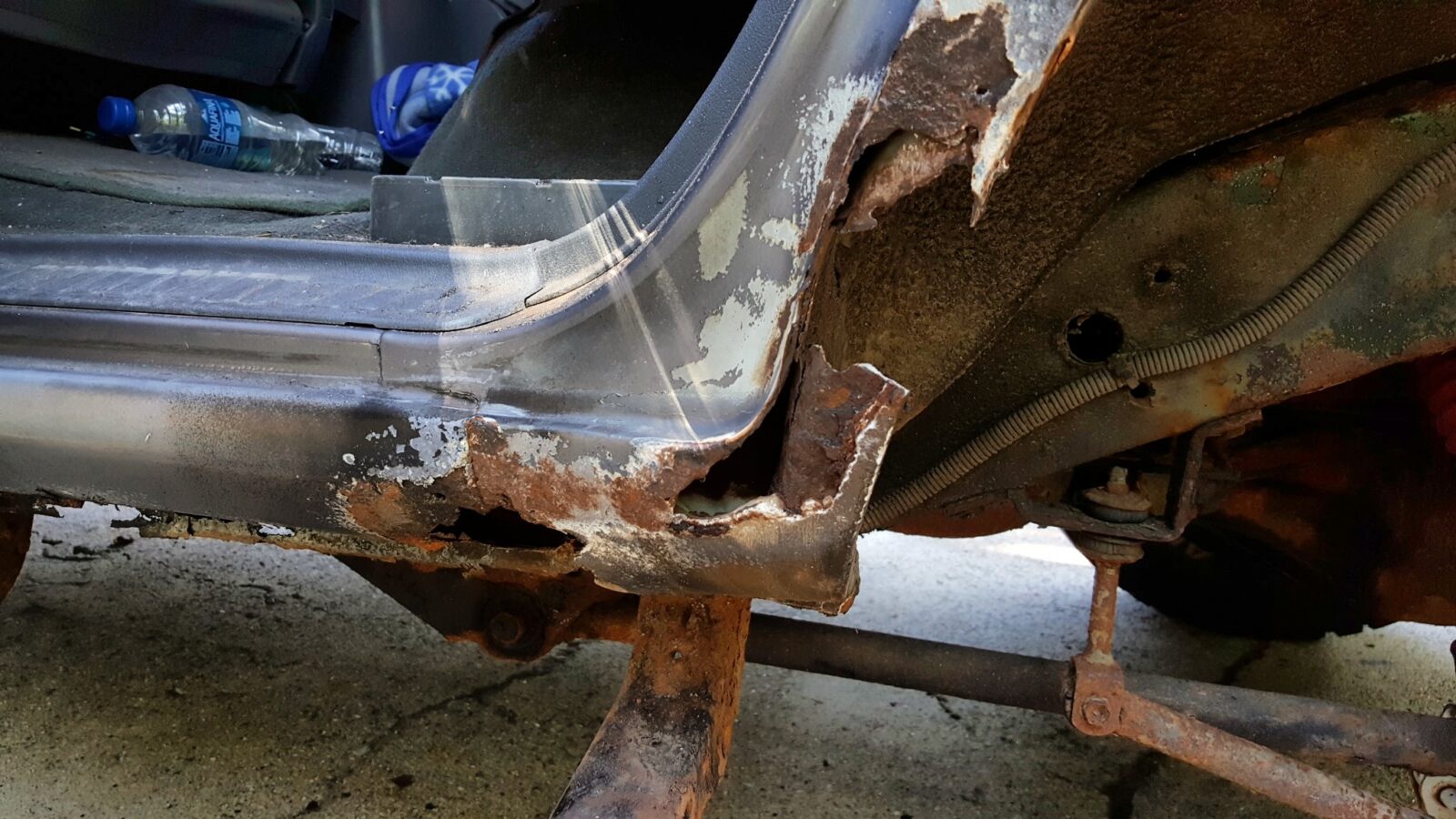
What I found interesting was that after a ton of work, none of the needles showed wear when I was done with the truck.
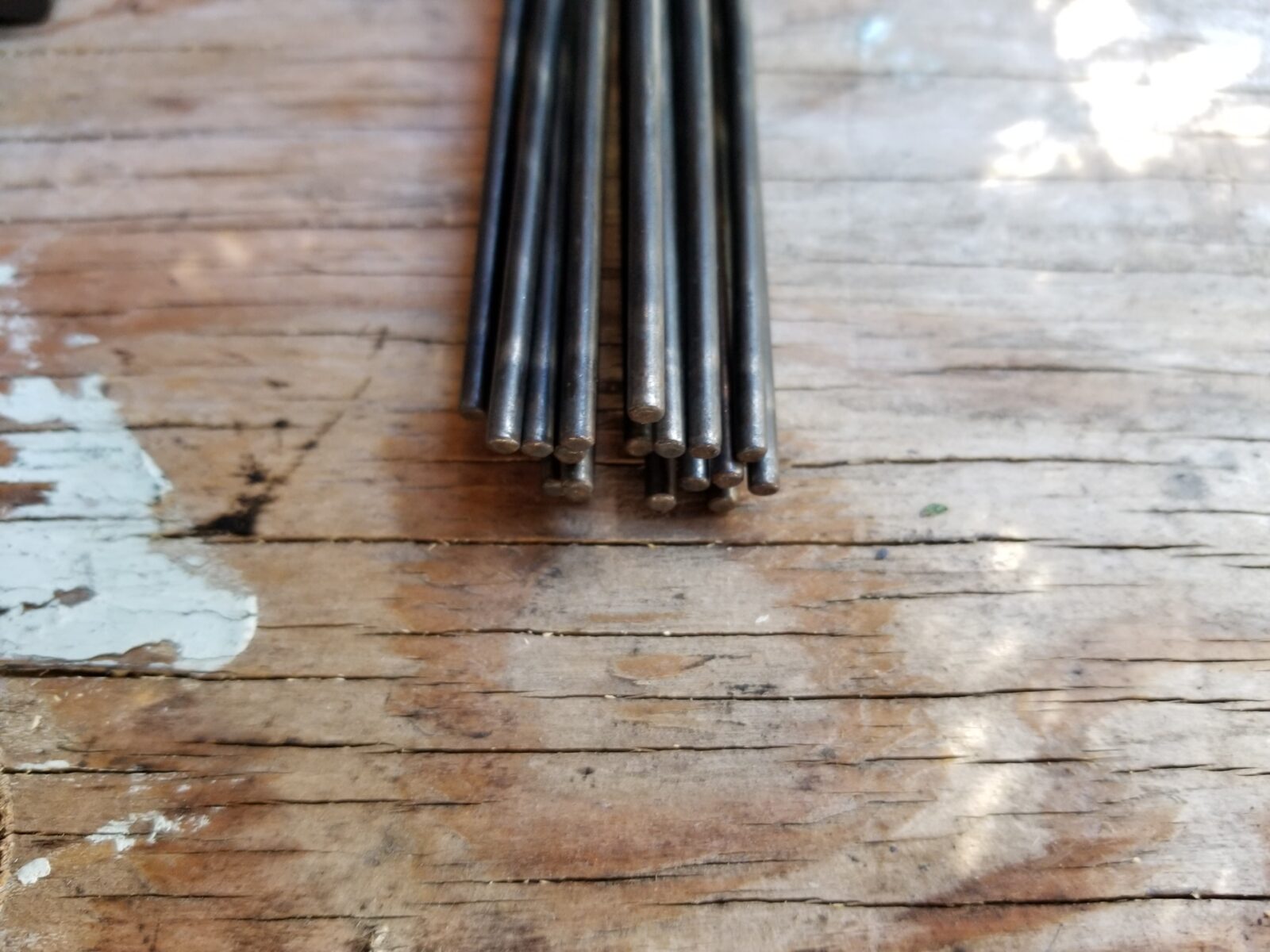
I definitely recommend this Ingersoll Rand model 125 needle scaler. I think it did a superb job and will definitely be using it on future projects.
If you find this post useful, please share the link on Facebook, with your friends, etc. Your support is much appreciated and if you have any feedback, please email me at in**@*********ps.com. Please note that for links to other websites, we are only paid if there is an affiliate program such as Avantlink, Impact, Amazon and eBay and only if you purchase something. If you’d like to directly contribute towards our continued reporting, please visit our funding page.
